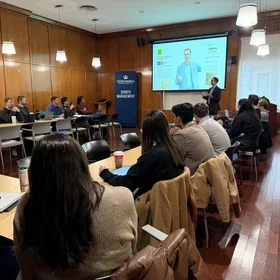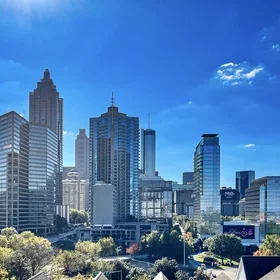Diversity and inclusion matter. That’s why, in 2021, Columbia University School of Professional Studies formed the Diversity, Equity, Inclusion, and Accessibility (DEIA) Committee. The committee comes together to identify and recommend ways DEIA can be promoted in SPS. This is the kind of work that is important to Committee member Saxon Stahl, (‘23CS and candidate for the M.S. in Political Analytics).
Stahl established the Columbia Climate School's student government, writing its bylaws and constitution to empower students and promote representation and equity. In 2023, Stahl received the Campbell Award from the Columbia University Trustees and the Columbia Alumni Association for showing exceptional leadership and school spirit.
We spoke to Stahl, who hopes to work in the federal government on policies that reduce greenhouse gas emissions in the U.S., about the committee and building up a DEIA workforce.
Why did you decide to join the DEIA committee?
I'm originally the DEIA representative for the SPS Student Government (SPSSG), appointed to serve by the executive board on this committee. A lot of my interest in the committee stems from my familiarity with DEIA work as a representative going back to 2019. Being involved in both academic and professional conversations of creating equitable action plans and associated projects to bring diverse perspectives and backgrounds has equipped me with not just joining the conversation of the committee but also coming up with ideas of how we can implement action. What we do will matter for the future and how SPS will be shaped in its commitment to diversity, inclusion, equity, and accessibility.
Why is what DEIA’s doing so important for our community?
The DEIA committee is one of the key groups that ask the question "What's missing here?" when looking at pre-existing policies and methodologies that can take action on our University values. This includes overseeing the types of materials put out at SPS events, addressing the issues that are on students’ minds, and pointing out accessibility oversight. We're currently in the process of introducing a new Associate Director for DEIA and this is a major step in building up the DEIA workforce in SPS.
In your profile piece for the Columbia Climate School's State of the Planet blog you said: “For a lot of my life, I’ve found myself in a room where I was in one way or another breaking the glass ceiling, whether through my own background or what I was advocating for. With each new step, I like to ask, ‘How are we breaking through this time?’”: How is the DEIA breaking through?
The presence of the DEIA committee allows us to be included in discussions at SPS where DEIA wasn't previously a priority: leadership search committees, crisis action plans, and policy implementations. When the committee is included in these types of discussions, the overall campus community becomes more equipped in decision-making with a diverse range of solutions led by leaders with a variety of different skills who can uplift the community. In addition, we develop an understanding of how valuable these different perspectives are as we become more informed about each other in our social relationships.
In your opinion, what movies or novels have done a good job of examining the values of diversity, equity, inclusion, and accessibility?
We recently watched Do The Right Thing, directed by Spike Lee, in one of my electives. It opens up an uncomfortable discussion on race and ethnicity and how bias is harbored within all of us, but it's up to us to check that prejudice. How to Be an Antiracist by Ibram X. Kendi is a foundational piece of literature for DEIA spaces. It challenges us to actively be against the same systems that benefited from the exclusion of diverse groups through a variety of channels such as our relationships with others and within ourselves. Finally, I would say On Intersectionality: Essential Writings by Kimberle Crenshaw is a fantastic examination of the sociopolitical power structure and an introduction to the building blocks of acknowledging intersectionality.


